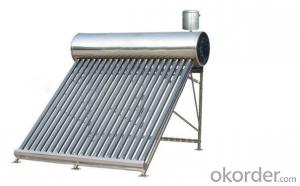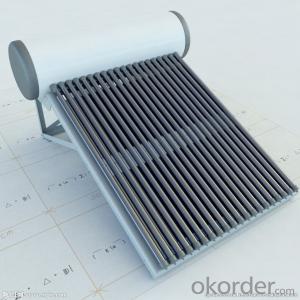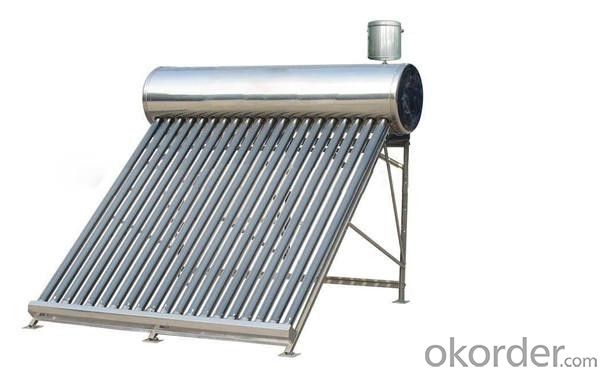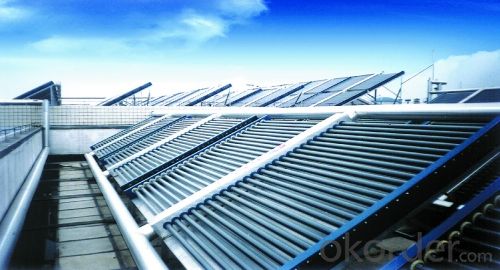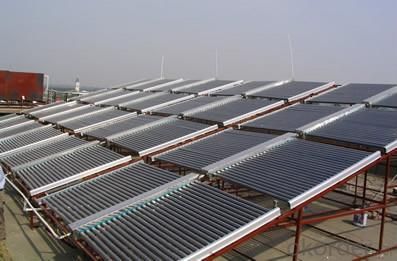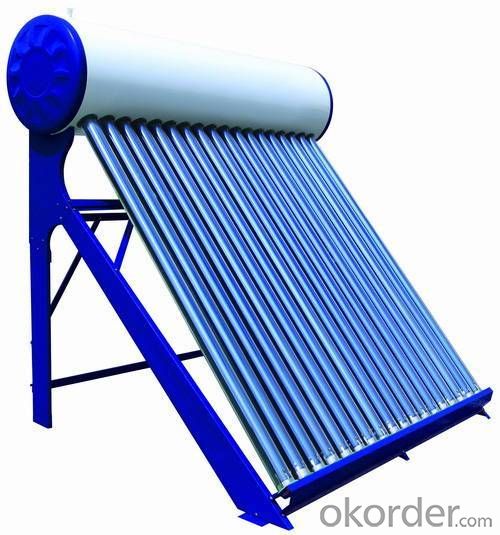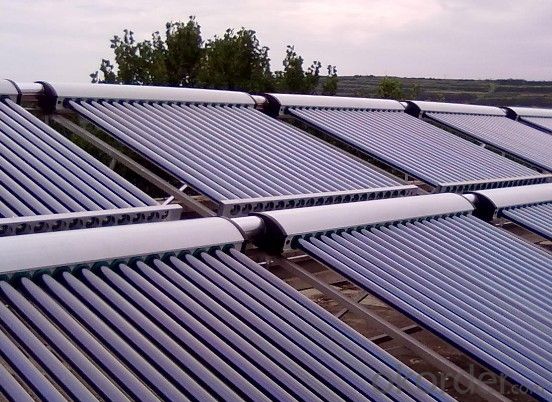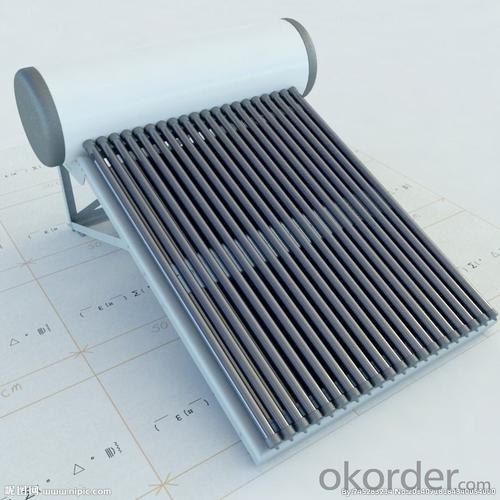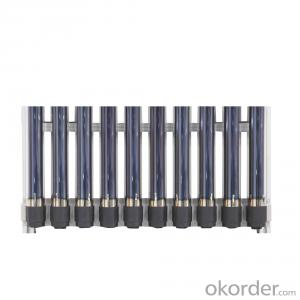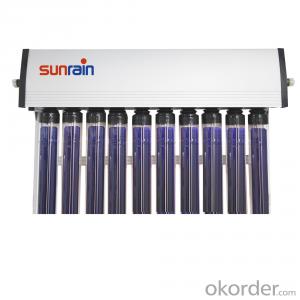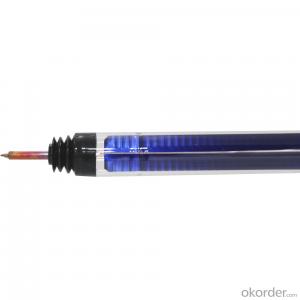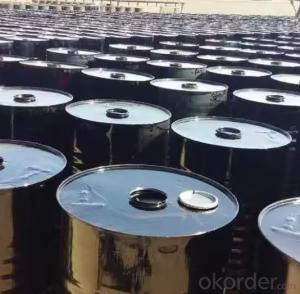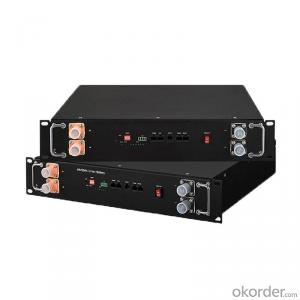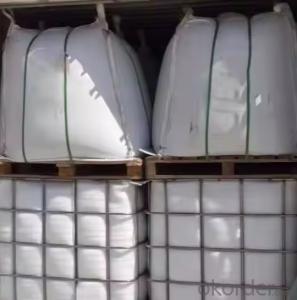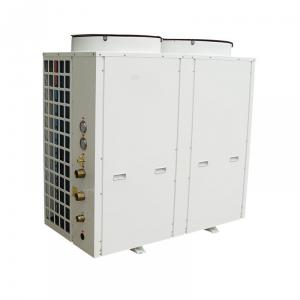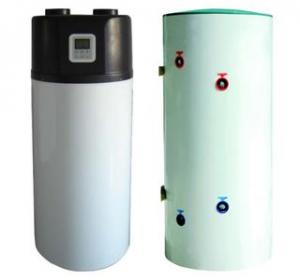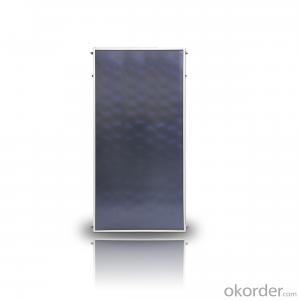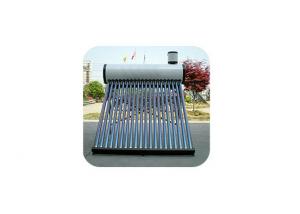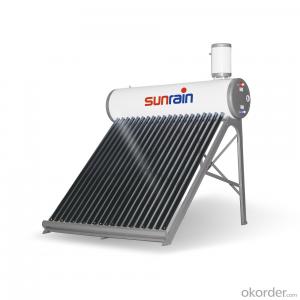Freestanding Vacuum Tube Unpressurized Solar Hot Water Heater
- Loading Port:
- China main port
- Payment Terms:
- TT OR LC
- Min Order Qty:
- 10 set
- Supply Capability:
- 10000 set/month
OKorder Service Pledge
OKorder Financial Service
You Might Also Like
Introduction of Non-Pressure Solar Water Heater:
Non-pressure Solar Heater is one of the most economical solar water heating device with pretty high efficiency at the same time. It consists of hot water storage tank, solar vacuum tubes with mouth plug in storage tank, and bracket supporting tank and tubes.When cold water in evacuated tubes is heated with solar irradiation, as the specific gravities of hot water and cold water are different, hotter water goes upward to storage tank and colder water goes downward to glass tubes. through this continuous circulation, the cold water in storage tank will be gradually heated till sunset.
Solar water heaters working principle
1. The solar collector absorbs solar energy and transmits it to the solar water heater tank through circulation
2. When the temperature of the collector reaches the set value, the controller starts the circulation pump automatically
3. The circulation pump makes heat-conducting liquid circulate automatically
4. The heat-conducting liquid transfers heat to water by lower heat exchanger in the water tank.
5. When the temperature difference between solar collector and heat pipe solar water heaters tank doesn't reach the set value, the circulation pump will be shut automatically
6. In case the temperature of the water tank does not reach Tmax, Electric Heating Element will start to work automatically
Solar water heaters working station component:
1. Operating screen
2. Manometer
3. Pump speed adjust switches
4. Temperature difference circulation pump
5. Flow rate indicator
6. Return circuit connector
7. Safety valve
Solar water heaters specification:
Description | solar water heaters |
Material of out manifold | 0.55mm thickness color steel/ fluorine carbon steel |
Material of inner tank | Food grade 2.0 mm thickness SUS304 stainless steel |
Tank insulating layer | 40mm 45kg/m³ high-density polyurethane foamed |
Inlet and outlet hole | Male G1'' |
Max pressure | 0.6 Mpa |
Solar collector tube | 3.3 Borosilicate glass with N/Al coating |
Thickness of glass tube | 1.6mm |
Vacuum tube tightness | P≤0.005 Pa |
Absorption | as=0.93-0.96 (AM1.5) |
Emission ratio | εh=0.04-0.06 (80C±5C) |
Idle sunning property parameters | Y=220~260m2.C/KW |
Average heat loss coefficient | ULT=0.6~0.7W/(m2.C) |
Bracket: | 2.0mm thickness aluminum alloy |
Tank weight | 75KGS |
Tank size | 560mm Dia x 1810mm Height |
Tank capacity | 300L |
Solar collector | 2pcs 58x1800x15tube solar collector |
Absorber area | 2.811 m² |
Working station | SP116 working station |
Heat exchanger length | Upper:12m, Underside:18m |
Solar water heaters details show:
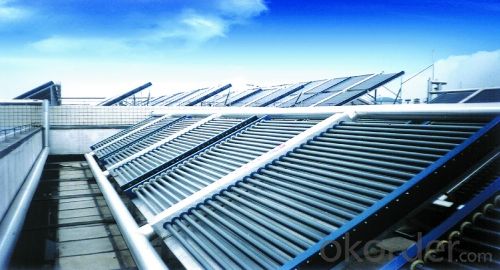
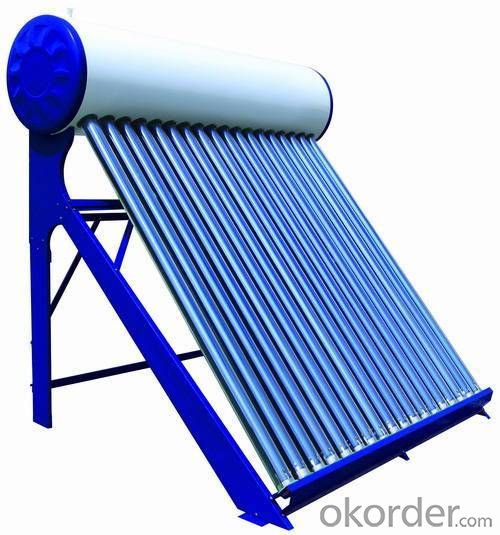
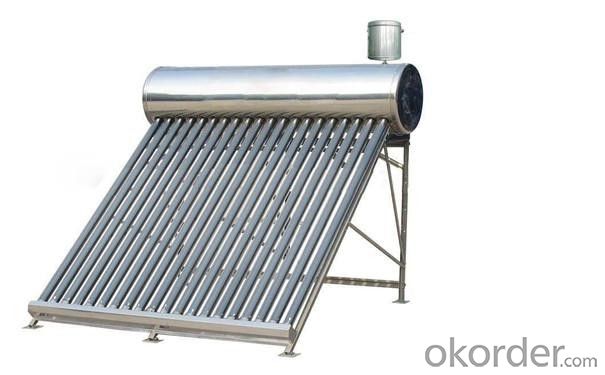
Benefits of this kind of solar water heaters:
1. Prolong the life of your existing water heater
2.Costs less than an electric, gas or oil water heater
3.No maintenance required
4.Lasts longer than a traditional hot water heater
5.Reduce your water heating costs
- Q:Can a solar water heater be used in areas with limited pellet availability?
- Yes, a solar water heater can be used in areas with limited pellet availability. Unlike pellet-based water heaters, solar water heaters rely on the energy from the sun to heat the water. They utilize solar thermal collectors, typically mounted on rooftops, to capture the sun's heat and transfer it to the water. As long as there is sufficient sunlight, a solar water heater can operate effectively without the need for pellets or any other fuel source. This makes it a suitable and sustainable option for areas with limited pellet availability or where access to traditional energy sources may be challenging. However, it is important to note that solar water heaters may require an alternative backup heating system, such as an electric or gas heater, for periods of low sunlight or high demand.
- Q:Can a solar water heater be used for heating water for industrial purposes?
- Yes, a solar water heater can be used for heating water for industrial purposes. Solar water heaters are capable of providing sufficient hot water for various industrial applications such as cleaning, sanitizing, or preheating water for industrial processes. However, the size and capacity of the solar water heater system would need to be appropriately designed to meet the specific demands of the industrial facility.
- Q:Can a solar water heater be used in areas with limited access to energy audits?
- Yes, a solar water heater can be used in areas with limited access to energy audits. Solar water heaters primarily rely on sunlight to heat water, making them an energy-efficient alternative to traditional water heaters. While energy audits can provide valuable insights and recommendations for optimizing energy usage, the installation and functioning of a solar water heater do not necessarily require an energy audit. However, it is still advisable to consult with local experts or professionals for guidance on installation techniques and maintenance practices to ensure optimal performance and energy savings.
- Q:Can a solar water heater be used in areas with limited access to biofuels?
- Solar water heaters can be used in areas with limited access to biofuels. Unlike traditional water heaters that rely on fossil fuels or biofuels, solar water heaters use the sun's energy to heat water. They consist of panels that capture sunlight and convert it into heat, which is then used to warm the water in a tank. Solar energy is abundant and freely available in most areas, making it a viable alternative to biofuels in regions where access to such fuels is limited. By utilizing solar water heaters, one can have a sustainable and environmentally friendly option for hot water without relying on biofuels. This reduces dependence on limited resources and minimizes the carbon footprint.
- Q:Are there any government incentives or tax credits for installing a solar water heater?
- Yes, there are government incentives and tax credits available for installing a solar water heater. These incentives vary depending on the country and region, but they are generally aimed at promoting renewable energy adoption and reducing carbon emissions. It is recommended to check with local government or utility websites for specific details and eligibility criteria.
- Q:What is the maintenance required for a solar water heater?
- The maintenance required for a solar water heater typically includes checking the system's components and connections for any signs of damage or leaks, cleaning the solar collectors to ensure optimal performance, and occasionally flushing the system to remove any mineral or sediment buildup. It is also important to regularly monitor the system's performance and ensure that it is functioning efficiently.
- Q:Can a solar water heater be used in areas prone to hurricanes or other severe weather conditions?
- Yes, a solar water heater can be used in areas prone to hurricanes or other severe weather conditions. While it is true that severe weather events like hurricanes can cause damage to infrastructure, including solar water heaters, proper installation and design can minimize the risk. Solar water heaters are typically installed on rooftops or other elevated areas to maximize sun exposure, but they can be securely anchored to withstand strong winds. In areas prone to hurricanes, it is essential to follow building codes and regulations that require the installation of hurricane straps or other reinforcement measures to ensure the solar water heater remains intact during severe weather conditions. Additionally, some manufacturers produce solar water heaters specifically designed to withstand high winds and severe weather. These models may have reinforced frames, impact-resistant glass, and other protective features to enhance their durability. It is crucial to choose a reliable and reputable manufacturer when purchasing a solar water heater for use in hurricane-prone areas. In the event of an approaching hurricane or severe weather conditions, it is recommended to shut off the water supply and drain the solar water heater to prevent any potential damage. This precautionary measure can help protect the system from water infiltration or damage caused by debris during the storm. Overall, with proper installation, reinforcement, and maintenance, a solar water heater can be used in areas prone to hurricanes or other severe weather conditions. However, it is important to take necessary precautions and follow local building codes to ensure the system's resilience and safety during extreme weather events.
- Q:How does a solar water heater impact the carbon footprint of a household?
- A solar water heater significantly reduces the carbon footprint of a household by using renewable energy from the sun to heat water instead of relying on fossil fuels. This means it reduces the emissions associated with traditional water heating methods, such as burning natural gas or using electricity generated from coal-fired power plants. By harnessing a clean and sustainable energy source, solar water heaters help decrease greenhouse gas emissions, making them an environmentally friendly choice for reducing the carbon footprint of a household.
- Q:What happens to a solar water heater during periods of heavy rain?
- A temporary decrease in efficiency may occur for a solar water heater during periods of heavy rain. The sunlight can be obstructed by the rainwater, preventing it from reaching the solar panels or collectors. These components are responsible for absorbing the sun's energy and heating the water. As a result, the heat transferred to the water decreases, leading to a slower heating process. Despite this, most solar water heaters are designed to handle various weather conditions, including heavy rain. They typically come equipped with a backup heating system, like an electric or gas heater. This backup system can be activated when the solar panels are not as effective. Furthermore, certain solar water heaters have built-in mechanisms that automatically drain excess rainwater from the system. This prevents any potential damage and ensures that the solar water heater remains functional even during heavy rain. It is worth noting that the impact of heavy rain on a solar water heater can vary based on local weather conditions, system design and quality, and maintenance practices. Regular maintenance, such as cleaning the solar panels or collectors, can optimize the system's performance and minimize any negative effects caused by heavy rain.
- Q:Can a solar water heater be used in conjunction with a traditional water heater?
- Yes, a solar water heater can be used in conjunction with a traditional water heater. This setup is known as a solar water heating system with a backup or auxiliary heater. The solar water heater will primarily provide hot water using the sun's energy, but in times of inadequate sunlight or high hot water demand, the traditional water heater will kick in to ensure a continuous supply of hot water.
1. Manufacturer Overview |
|
|---|---|
| Location | |
| Year Established | |
| Annual Output Value | |
| Main Markets | |
| Company Certifications | |
2. Manufacturer Certificates |
|
|---|---|
| a) Certification Name | |
| Range | |
| Reference | |
| Validity Period | |
3. Manufacturer Capability |
|
|---|---|
| a)Trade Capacity | |
| Nearest Port | |
| Export Percentage | |
| No.of Employees in Trade Department | |
| Language Spoken: | |
| b)Factory Information | |
| Factory Size: | |
| No. of Production Lines | |
| Contract Manufacturing | |
| Product Price Range | |
Send your message to us
Freestanding Vacuum Tube Unpressurized Solar Hot Water Heater
- Loading Port:
- China main port
- Payment Terms:
- TT OR LC
- Min Order Qty:
- 10 set
- Supply Capability:
- 10000 set/month
OKorder Service Pledge
OKorder Financial Service
Similar products
New products
Hot products
Hot Searches
Related keywords
